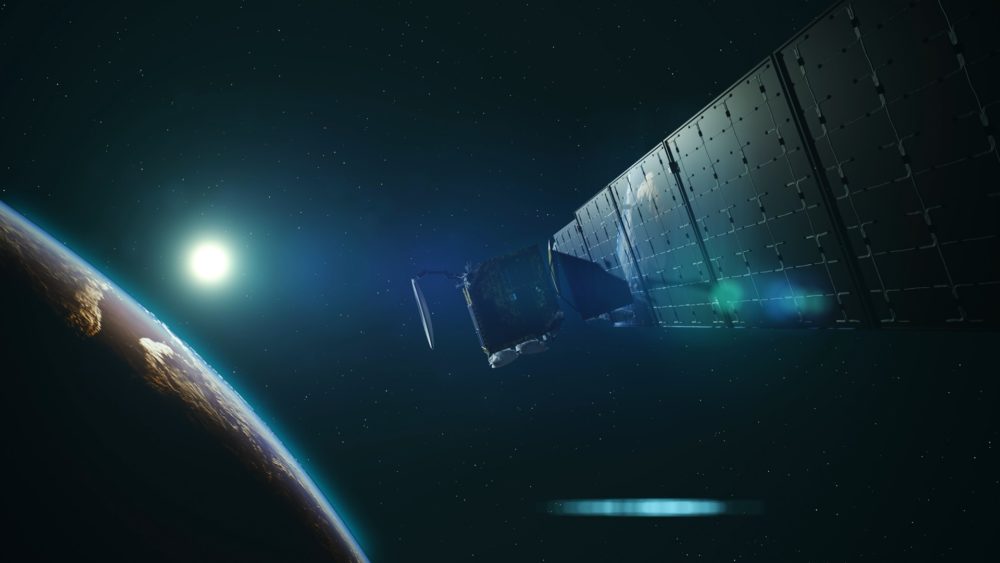Elon Musk's Starlink space internet attached to Microsoft system in breakthrough that could power computers all over the world
Microsoft says that it will supply a ‘multi-orbit, multi-band, multi-vendor, cloud-enabled’ service

Your support helps us to tell the story
From reproductive rights to climate change to Big Tech, The Independent is on the ground when the story is developing. Whether it's investigating the financials of Elon Musk's pro-Trump PAC or producing our latest documentary, 'The A Word', which shines a light on the American women fighting for reproductive rights, we know how important it is to parse out the facts from the messaging.
At such a critical moment in US history, we need reporters on the ground. Your donation allows us to keep sending journalists to speak to both sides of the story.
The Independent is trusted by Americans across the entire political spectrum. And unlike many other quality news outlets, we choose not to lock Americans out of our reporting and analysis with paywalls. We believe quality journalism should be available to everyone, paid for by those who can afford it.
Your support makes all the difference.Microsoft has launched its cloud computing capabilities, Azure, into space by partnering with Elon Musk.
The company developed Azure Space so that it might be used to simulate space missions, or analyse satellite data.
Microsoft is teaming up with SpaceX Starlink, the endeavor to create a network of satellites in low-Earth orbit that could send broadband signals to almost everywhere on Earth.
It says that as well as the space industry, the fields of agriculture, energy, telecommunications, and government will also benefit from the project.
“Our global network of over 160,000 miles of subsea, terrestrial, and metro optical fiber helps billions of people connect all around the world. However, many of our customers also operate in remote, rugged environments and find it hard to keep pace with their increased need for access to data and bandwidth”, wrote Tom Keane, Microsoft’s Corporate Vice President of Azure Global in a blog post.
“A thriving ecosystem of satellite providers is needed to meet the world’s growing network needs, and we are excited to partner with industry leaders to bring these capabilities to our customers faster.”
Microsoft says that it will supply a “multi-orbit, multi-band, multi-vendor, cloud-enabled” service.
Alongside its space endeavours, Microsoft revealed the Azure Modular Datacenter (MDC), which is portable and able to be used in areas which do not have reliable cloud computing capabilities.
The MDC can operate in a wide range of climates and harsh conditions, housing its servers in a rugged unit which also protects it from radio frequencies.
“You have a centre, a capability, you put anywhere on Earth. You need to get that data somewher eels, and having a satellite-based system, you can get there without fibre, you don’t need fibre,” SpaceX president and COO Gwynne Shotwell said in a video.
“You basically talk to the satellites we have in orbit, the satellites will talk to each other, and get that data to the other point on Earth where it’s needed.”
Microsoft also launched the Azure Orbital Emulator, an emulation environment which allows satellite developers to train AI algorithms and networking before launching any crafts.
“Azure can emulate an entire satellite network including complex, real-time scene generation using pre-collected satellite imagery for direct processing by virtualized and actual satellite hardware”, Keane says.
Microsoft is not the only company to be working on cloud service in space, however. Amazon also offers a service to connect Amazon Web Services to satellites, called Aerospace and Satellite Solutions.
It works with NASA, the US military, and private space companies including Lockheed Martin.
Amazon also has a plan to launch thousands of satellites into space to establish a global internet network called Project Kuiper, alongside the developments made by Jeff Bezos-owned space company Blue Origin.



Join our commenting forum
Join thought-provoking conversations, follow other Independent readers and see their replies
Comments